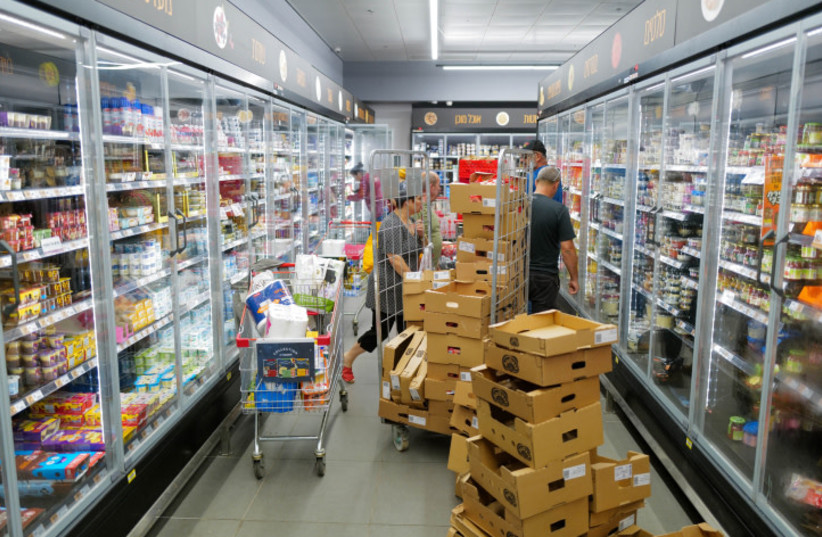The Food Industries Association of Israel (FIAI) warned that the ongoing conflict between Israel and Hamas in Gaza, and along with an increasing threat from Houthi rebels along the Bab al-Mandab Strait, that unless immediate action is taken by the Israeli government, Israel's food security is in danger.

The two warned that the government must have a strategy prepared within which goals will be set to ensure local production of at least 75% of the required food in order to prevent a food crisis.
The FIAI stated that approximately 90% of Israel's food production facilities are located in the conflict zones in the north and south, and despite the security tensions, the facilities are continuing to operate while they are exposed to rocket barrages from Gaza or Lebanon and many of their employees have been evacuated to remote areas.
At the outbreak of war following the October 7 massacres, supermarkets and shops across Israel saw panic-buying ahead of the expected Israeli military retaliation. Water, toilet paper, and other essentials quickly sold out throughout the countrym and limits were put in place to prevent people from overbuying supplies.
